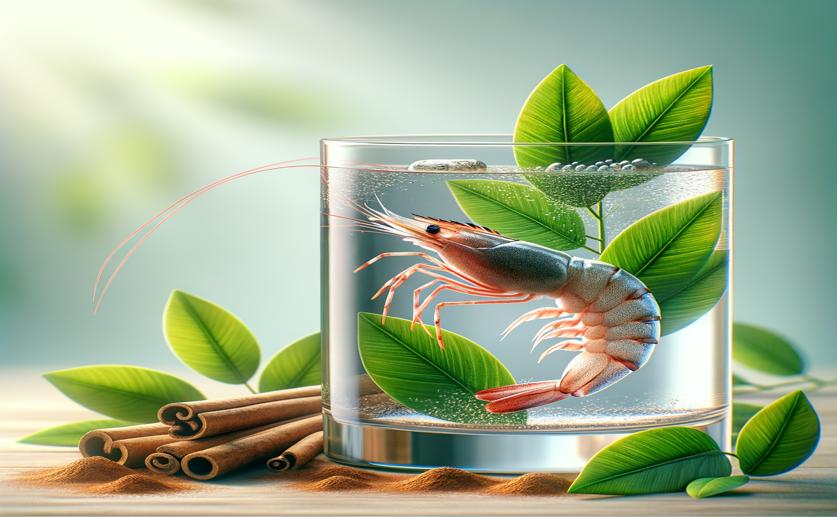
Boosting Immune Responses and Health in Shrimp with Cinnamon Leaf Extract
Jenn Hoskins
8th June, 2024

Image Source: Natural Science News, 2024
Key Findings
- Researchers from the National Taiwan Ocean University found that Cinnamomum osmophloeum leaf hot-water extract (CLWE) is safe for white shrimp at concentrations up to 500 mg/L
- Shrimp fed with 0.5 g/kg CLWE showed the highest immune responses, including increased haemocyte count, superoxide anion production, PO activity, and phagocytic activity
- CLWE, especially at 0.5 g/kg, significantly enhanced shrimp's resistance to Vibrio parahaemolyticus, reducing nonviable cells and activating immune cells
SpicesAnimal ScienceMarine Biology
References
Main Study
1) Effects of Taiwanese indigenous cinnamon (Cinnamomum osmophloeum) leaf hot-water extract on nonspecific immune responses, resistance against Vibrio parahaemolyticus, nonviable cells, and haemocyte subpopulations in white shrimp (Penaeus vannamei).
Published 5th June, 2024
https://doi.org/10.1016/j.fsi.2024.109680
Related Studies
2) Beneficial Biological Activities of Cinnamomum osmophloeum and its Potential Use in the Alleviation of Oral Mucositis: A Systematic Review.
3) Antifungal activities of essential oils and their constituents from indigenous cinnamon (Cinnamomum osmophloeum) leaves against wood decay fungi.
Journal: Bioresource technology, Issue: Vol 96, Issue 7, May 2005
4) Evaluation of the antibacterial activity of leaf and twig extracts of stout camphor tree, Cinnamomum kanehirae, and the effects on immunity and disease resistance of white shrimp, Litopenaeus vannamei.
5) The immune defense response of Pacific white shrimp (Litopenaeus vannamei) to temperature fluctuation.



 30th May, 2024 | Greg Howard
30th May, 2024 | Greg Howard